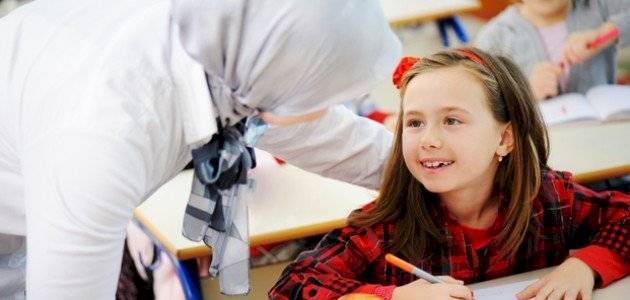This situation is becoming increasingly common today. Lebanese children from both sides, living in Lebanon, speak English or French more fluently than Arabic, and some have pronounced foreign language characters before Arabic ones. These situations have turned into a "phenomenon," as parents use foreign languages to communicate with their children, whether through direct conversation, reading stories, or choosing entertainment in foreign languages, according to early childhood education specialist Maryam Raad. She views this as "a form of social differentiation and a criterion for social status."
Raad explains that since language is the backbone of culture and a way of thinking, "our tendency towards foreign languages more than Arabic is driven by our attraction to Western culture; just as we eat burgers and wear jeans, we speak the language of the powerful." This behavior reinforces "our disconnection from our cultural and national identity. We are not embarrassed if we mispronounce an Arabic word or substitute ‘ḍād’ with ‘dāl’ in writing... but we feel ashamed if our incompetence in mastering a foreign language is revealed. This is, in short, the inferiority complex that drives us to imitate the West."
The grandmother to her grandchildren: "Speak to Me in Arabic"
Far from seeking "prestige," parents have their justifications for passing on foreign languages to their children. "For their benefit," they insist. In their view, they are securing a place for them in the job market by choosing nurseries and schools that prioritize teaching them "the language of the times." They are keen to learn and teach it to their children to ease their future emigration.
Some parents notice the decline in their children's native language skills, which bothers them, but it is an expected outcome as long as the child is excessively exposed to foreign languages, far exceeding their exposure to Arabic. Arabic-language entertainment programs for children are absent from TV screens, there are fewer publishing houses for Arabic children’s stories, and those that exist struggle with marketing. Additionally, children spend most of their time in American or Francophone schools. For instance, Abbas (7 years old) studies in an American system school and then returns home to converse with his family in English. When his father asks him to use Arabic, he places the responsibility back on his parents: "You send me to a school where we speak English all the time, and the Arabic class is at the end of the day when I’m hungry and tired."
Maryam, a grandmother to eleven grandchildren, all of whom prefer English because it is "easier," feels annoyed every time she hears them conversing in a "different language." She feels even more frustrated when they request chocolate bars or sleepovers in English, which she "does not understand," insisting, "Speak to me in Arabic." After moving to the village, her grandchildren's Arabic language skills have significantly declined, as "my home was the only place they used Arabic." She laments how her three grandchildren, who have lived in America since birth, are better at Arabic than her eleven grandchildren residing in Lebanon.
An Adverse Result
The problem is not in being open to the cultures and languages of other countries; rather, that is necessary for development. "However, we overdo our openness to the point where we seem to be more royal than the king. We want our children to speak French better than the French themselves," says Raad. She draws attention to parents who aim to teach their children a second language alongside their primary one from an early age, often inserting foreign vocabulary in Arabic sentences or vice versa. Raad warns that "using more than one language with the child during the first three years of education, considered the language acquisition period, is a grave mistake that affects their cognitive development and delays their speech, consequently delaying their acquisition of both languages." Instead, she advises that "a child should be exposed only to their mother tongue during their language acquisition age. At age four, they should begin learning a second language, and then a third." It is noted that a challenge exists in learning Arabic, "linked to the difference between the colloquial Arabic that the child learns from their environment and the Modern Standard Arabic they learn in school."




